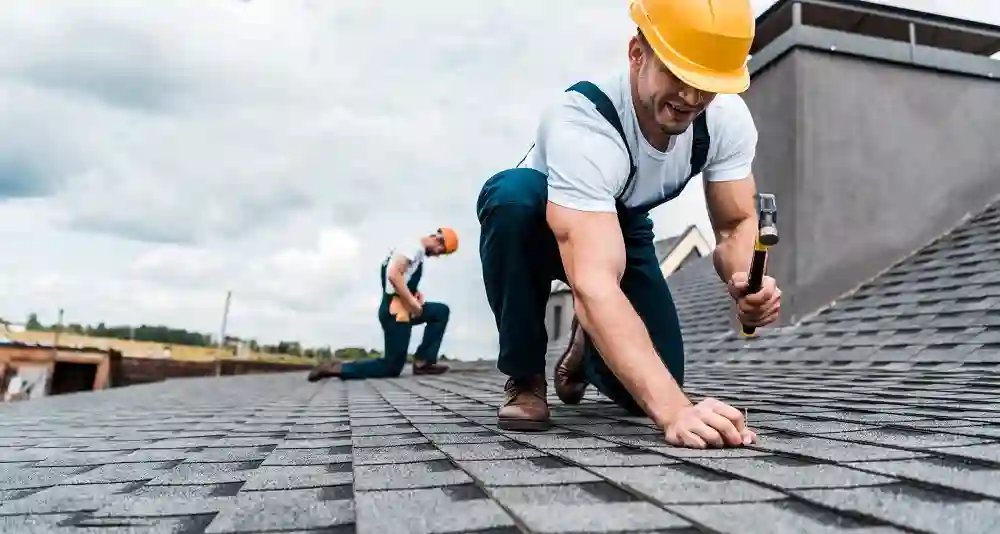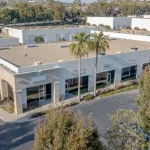Your roof is not just a protective covering for your home or property; it’s a critical component that plays a significant role in ensuring the safety, comfort, and longevity of your investment. When it comes to maintaining, repairing, or replacing your roof, the expertise of a professional roofing contractor is invaluable. In this article, we’ll delve into the essential role that a roofing contractor plays in preserving the integrity and functionality of your roof.
1. Roof Inspections
One of the primary roles of a professional roofing contractor is to conduct thorough roof inspections. Regular inspections are essential to assess the current condition of your roof, identify any issues or damage, and determine if maintenance or repairs are needed. These inspections are particularly crucial after severe weather events such as storms, hail, or heavy winds.
During a roof inspection, the contractor will carefully examine various elements of your roof, including:
- The condition of shingles, tiles, or roofing materials
- The state of flashing and sealants around vents, chimneys, and skylights
- The integrity of the gutters and downspouts
- The presence of leaks or water damage
- The overall structural stability of the roof
Based on their findings, the roofing contractor can provide recommendations for necessary repairs or maintenance to ensure that your roof remains in top-notch condition.
2. Roof Repairs
Roofing contractors are experts in diagnosing and addressing a wide range of roofing issues. Whether it’s a minor leak, damaged shingles, or more extensive damage caused by a fallen tree limb, a professional roofing contractor can perform the necessary repairs efficiently and effectively.
Roof repairs may include:
- Patching or replacing damaged or missing shingles or tiles
- Repairing leaks and addressing water damage
- Fixing issues with flashing and sealants
- Reinforcing or replacing damaged structural components
- Addressing ventilation problems to prevent moisture buildup
Professional contractors have the skills, tools, and materials needed to ensure that repairs are carried out to the highest standards, restoring the integrity and functionality of your roof.
3. Roof Installations
When it’s time for a new roof, whether due to age, extensive damage, or a desire to upgrade, a professional roofing contractor plays a pivotal role in the installation process. Roof installations require precision, careful planning, and expertise to ensure that the new roof is both durable and aesthetically pleasing.
The installation process typically involves the following steps:
- Removing the old roofing materials and disposing of them properly
- Inspecting and repairing the underlying roof structure as needed
- Installing a protective underlayment to prevent moisture penetration
- Applying roofing materials, such as shingles, tiles, or metal panels, in accordance with manufacturer specifications
- Ensuring proper ventilation to maintain a comfortable and energy-efficient environment
- Securing all roof components, including flashing, sealants, and ridge caps
Professional roofing contractors follow industry best practices and adhere to local building codes and regulations during roof installations, ensuring that your new roof meets all safety and quality standards.
4. Roof Maintenance
Regular roof maintenance is essential for extending the life of your roof and preventing costly repairs down the line. A professional roofing contractor can develop a comprehensive maintenance plan tailored to the specific needs of your roof and location.
Roof maintenance services typically include:
- Cleaning debris from gutters and downspouts to prevent water buildup
- Inspecting and repairing damaged or loose shingles, tiles, or roofing materials
- Addressing issues with flashing and sealants to prevent leaks
- Checking for signs of mold, moss, or algae growth and taking appropriate measures
- Ensuring proper ventilation to prevent moisture-related problems
- Conducting routine inspections and assessments of the roof’s overall condition
By investing in regular roof maintenance, you can identify and address potential issues before they escalate, ultimately saving you time and money.
5. Roof Replacements
There comes a time when a roof reaches the end of its useful life and requires replacement. Professional roofing contractors are equipped to handle roof replacement projects with precision and efficiency.
During a roof replacement, the contractor will:
- Remove the existing roofing materials and dispose of them properly
- Inspect the underlying structure for any damage or deterioration
- Install a new protective underlayment to enhance durability and weather resistance
- Apply the chosen roofing materials in accordance with manufacturer guidelines
- Ensure proper ventilation to maintain energy efficiency
- Secure all roof components, including flashing and ridge caps
- Conduct a final inspection to verify the quality of the installation
Roof replacements are significant projects that require careful planning and execution. A professional roofing contractor will work with you to choose the right roofing materials and provide a seamless replacement process.
6. Roofing Materials Expertise
Professional roofing contractors have in-depth knowledge of various roofing materials, from traditional asphalt shingles to metal roofing, clay tiles, wood shakes, and more. They can provide guidance on the best roofing materials for your specific needs, taking into account factors such as durability, climate, budget, and aesthetic preferences.
Roofing contractors can also help you explore eco-friendly and energy-efficient roofing options, such as cool roofs, which reflect more sunlight and absorb less heat, reducing cooling costs and environmental impact.
7. Emergency Repairs
In cases of sudden roof damage caused by storms, fallen trees, or other unforeseen events, roofing contractors are available to provide emergency repairs. They understand the urgency of such situations and can quickly assess and address the damage to prevent further harm to your property.
Professional roofing contractors are equipped with the necessary tools and materials to perform temporary or permanent emergency repairs, ensuring that your home or property remains secure and protected.
8. Warranty and Guarantees
Many professional roofing contractors offer warranties and guarantees for their work. These warranties can provide peace of mind, as they demonstrate the contractor’s commitment to the quality of their craftsmanship. It’s essential to review the terms and conditions of any warranties provided by the contractor to understand what is covered and for how long.
9. Compliance with Local Regulations
Roofing projects are subject to local building codes and regulations. Professional roofing contractors are well-versed in these requirements and ensure that all work complies with local standards. This includes obtaining the necessary permits and inspections to ensure that the project meets safety and quality guidelines.
10. Expertise in Roofing Systems
Roofing is more than just shingles or tiles; it involves a complex system of components that work together to protect your home. Professional roofing contractors have a deep understanding of roofing systems and how each component contributes to the overall performance and longevity of the roof. They can address issues related to ventilation, insulation, and moisture control to ensure your roof functions optimally.
In conclusion, a professional roofing contractor plays a multifaceted role in maintaining, repairing, and replacing your roof. From conducting thorough inspections and addressing repairs to performing precise installations and providing valuable maintenance services, roofing contractors are essential for preserving the integrity and functionality of your roof. When selecting a roofing contractor, be sure to choose one with the experience, expertise, and commitment to quality that aligns with your roofing needs and goals. Your roof is a vital part of your property – entrust it to a professional who understands its significance.














